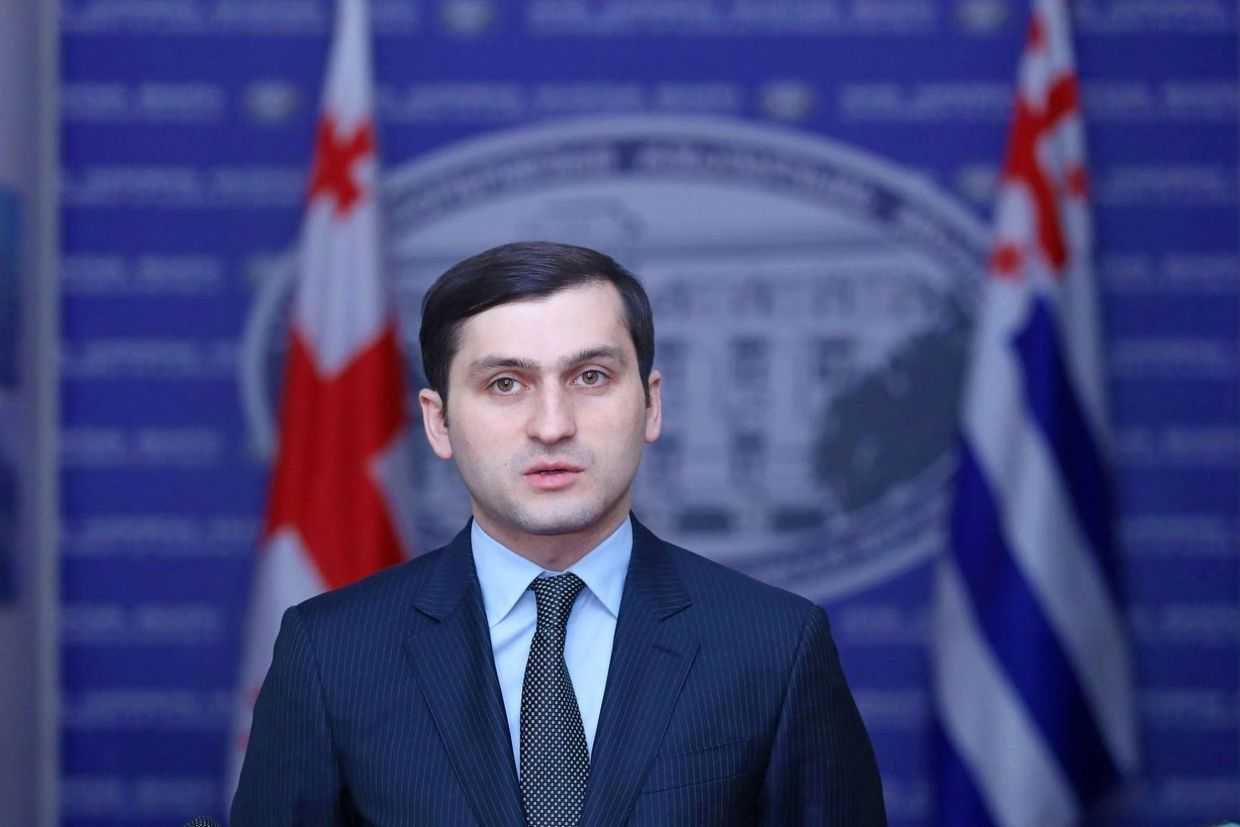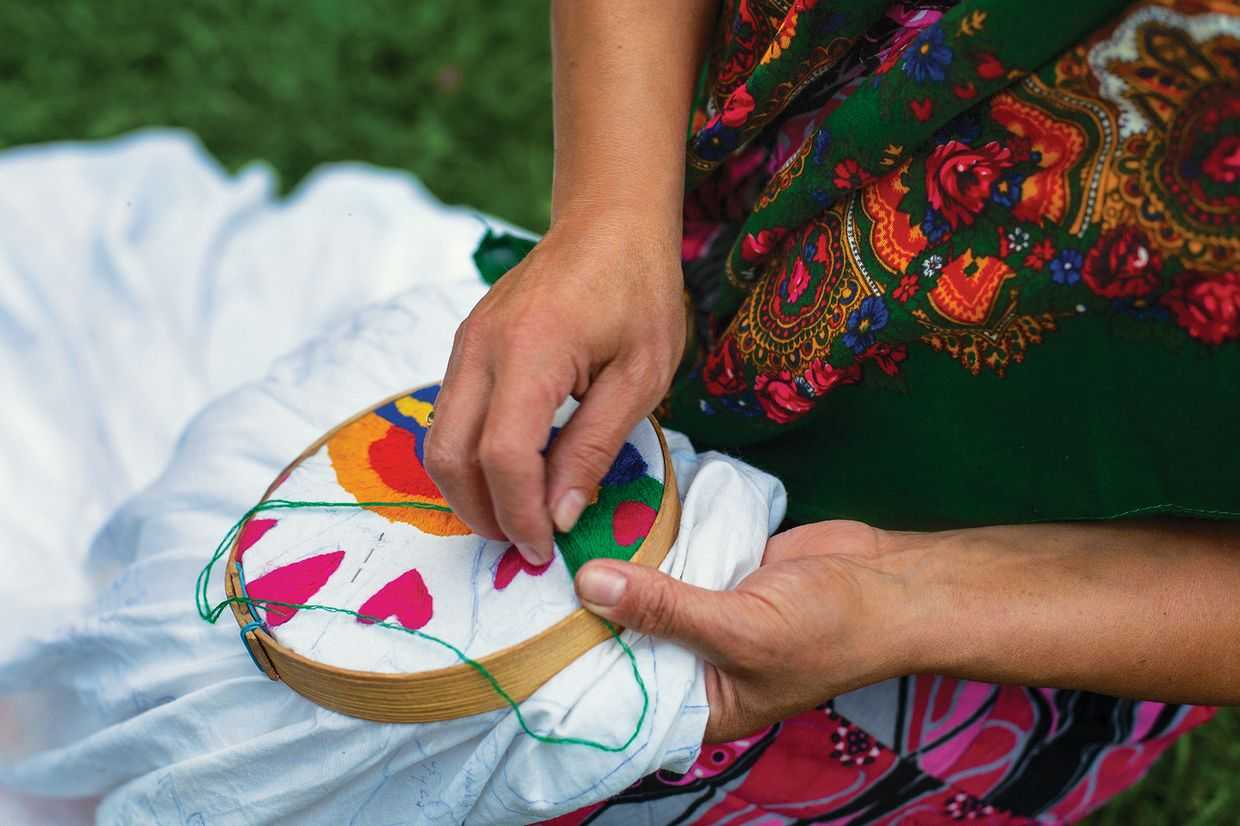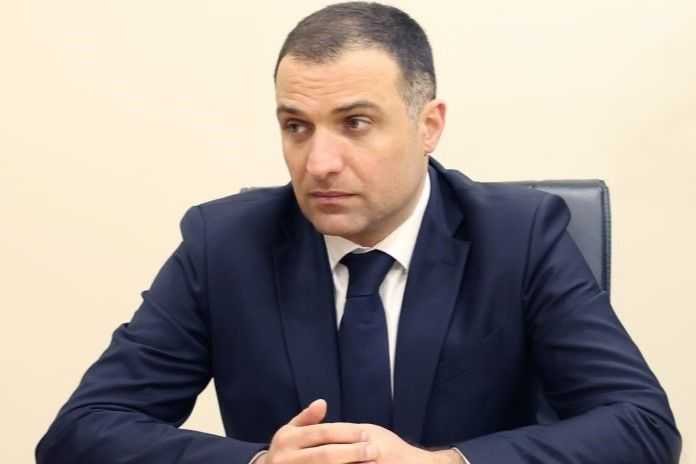
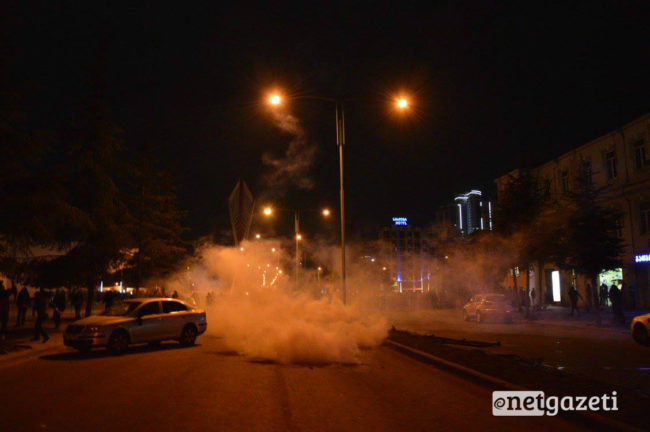
 Georgia’s port city of Batumi on the shores of the Black Sea was shaken by spontaneous outrage on 11–12 March. Riots supposedly over the issuing of a parking ticket were rooted in a peculiar mixture of anti-police sentiments, ethno-nationalism, and social exclusion.
Georgia’s port city of Batumi on the shores of the Black Sea was shaken by spontaneous outrage on 11–12 March. Riots supposedly over the issuing of a parking ticket were rooted in a peculiar mixture of anti-police sentiments, ethno-nationalism, and social exclusion.
The origins
A disagreement over a parking fine led to a violent riot on the night of 11–12 March in Batumi, the capital of the Autonomous Republic of Adjara. The protests were marked by disobedience and contempt towards the new chief of Batumi’s police force, who had reportedly tightened fining policy in the city.
Protest rallies against the new police chief started on 9 March. The first rally was attended by a local man, Merab Ghoghoberidze, who refers to himself as a human rights defender, and four other people. Ghoghoberidze admitted to Rustavi2 on 12 March that he was the organiser of the rallies, but did not take responsibility for the violence, instead blaming the authorities for ‘not reacting in time’.
In several now deleted Facebook posts, Ghoghoberidze called for demonstrations demanding the resignation of the new police chief, Kakha Bukhradze. Bukhradze, who recently served as head of the Shida Kartli/Gori Police force, was appointed as a head of Adjara’s Police force in January 2017.
Ghoghoberide accused Bukhradze of insulting locals and ‘calling them Tatars’ (a derogatory term applied to Georgian Muslims), but later said that he had not heard it personally. Ghoghoberidze posted a photo from a rally earlier on 10 March, displaying a middle-aged man holding a banner which reads: ‘Adjarans are not Tatars, Mr Policeman’. OC Media could not reach Bukhradze for comment.
The butterfly effect
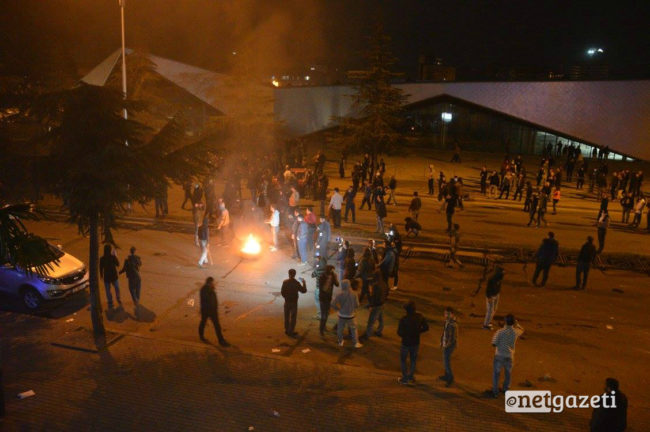
On the evening of 11 March, police officers gave a young man a parking ticket for illegally parking outside a pharmacy near the Batumi Plaza shopping mall. Witnesses told Batumelebi newspaper that after being fined, the man insulted the police, who ‘forcefully arrested’ him and his father. The Ministry of Internal Affairs has denied that excessive force was used. After being released, the man himself said that the police had not used excessive force against him and that he was treated ordinarily.
After the parking ticket incident, demonstrations erupted. People started gathering at the Batumi Plaza and at the local police headquarters. According to media reports, the protests were aimed at the new police chief, because he was from Gori, had ‘insulted locals’ and ‘fined locals unfairly’. They demanded his resignation along with the release of the arrested people.
The night of
Soon after the demonstrations started, people started throwing stones at the police, and riot police were called in to contain the situation. They used tear gas against the protesters sometime before midnight. Six people were detained, but were released by 03:00. According to officials, they will still be held accountable.
The demonstration was joined by some non-governmental organisations and political parties. The opposition United National Movement (UNM) held solidarity rallies in Tbilisi and other towns, but called for ‘constructive behavior’. The ruling Georgian Dream party promised to clarify the situation, but the demonstrations went on.
The rallies gradually became violent — protesters threw stones at the police station, turned police cars upside down, set them on fire, used Molotov cocktails, broke into the fireworks store and threw explosives towards the police station, smashed traffic lights and so on. Batumelebi reported that the police used tear gas and rubber bullets from time to time, but that each time the police tried to clear the protesters, they were repelled. The protesters’ demands expanded to government resignations. Demonstrators did not seem to have formulated demands in advanced and seemed confused.
Prime Minister Giorgi Kvirikashvili held an emergency briefing, urging for calm. The police would use only ‘minimal force to avoid possible complications’, he added. The Interior Minister, Giorgi Mghebrishvili, hurried to Batumi that night. After his arrival, auxiliary units of the riot police strode into the city. The number of demonstrators had already decreased and they managed to clear the city by around 07:00. More than thirty people were hospitalised during the night, and around forty were detained.
‘Despite the positive practice of refraining from excessive use of force, it must be said that the police did not have an effective strategy to ensure safety during the assembly, which paved the way for violent incidents across the city, and got entirely uncontrollable’, one non-governmental organisation, the Human Rights Education and Monitoring Center (EMC) said in a statement.
The aftermath
As work began to clean the streets following the night of carnage, investigations began on charges of organising riots (punishable by up to nine years in prison) and resisting/threatening police (punishable by up to seven years in prison).
Batumi City Court discussed the cases of 16 detainees, including three who were under 18 and were released by the court. Seven of them will be imprisoned for five days in pre-trial detention, while trials for six other detainees were postponed.
Political recriminations
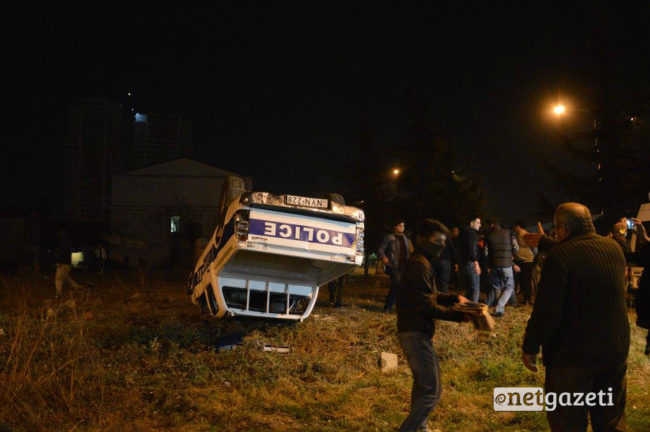
The government and opposition parties both blamed each other for being behind the chaos. PM Kvirikashvili called not only for ‘punishing vandals’ on 12 March, but also ‘exposing the instigators’ of the riot, pointing to the UNM as the culprit.
The UNM expressed solidarity with the protesters at first, they called for solidarity rallies in Tbilisi, Zugdidi, Kutaisi, and Rustavi, but after violence broke out in Batumi, they called these off to dissociate themselves from the turmoil. They also responded to Kvirikashvili, stating that they we would never accept these accusations.
What’s the problem?
The outrage seems to be over, and Batumi has calmed down for now, but questions remain — what triggered the riot? Is something happening in Adjara under the surface which the government should be worried about?
According to the EMC the protesters’ actions should not be dismissed simply as ‘criminal thinking’, as they can be ‘an expression of drastic social crisis and nihilism’. The EMC claims that the gathering showed signs of the social and political discontent that people in Adjara have.
Batumi underwent a series of changes over the past decade, but despite grand promises from the governments, a sense of isolation and a feeling of being left behind is clearly visible amongst youngsters, and does not seem to be buried deeply under the surface. A sense of identity also had a role in the protests. Chants of ‘Adjara for Adjarans’, ‘Batumi, Batumi’, ‘go sell apples in Gori’, ‘the government hates Adjarans’, among others, could be heard during the protests.
Religious dynamics in the region could also have played an important role. The allegations that the chief of police called Adjarans ‘Tatars’ was especially derogatory to Adjaran Muslims, the majority of whom are ethnic Georgians. ‘Tatar’ is an old name for Turkic-speaking peoples of the Caucasus, which is considered an ethnic and religious slur, especially as it asserts that Adjaran Muslims are more Turkish than Georgian.
At the same time, many Adjaran Christians were offended as they did not wish to be associated with their Muslim neighbours, and often see Islam as a threat to their ethnic and religious identity.
Religious conflicts and a non-secular, discriminatory policy by the state towards Georgia’s muslim community must be underlined, EMC suggests, claiming that government policy has contributed to the further marginalisation of the Muslim community. Therefore, they suggest that it is essential for the state to understand the severity of exclusion and marginalisation felt by these groups.
